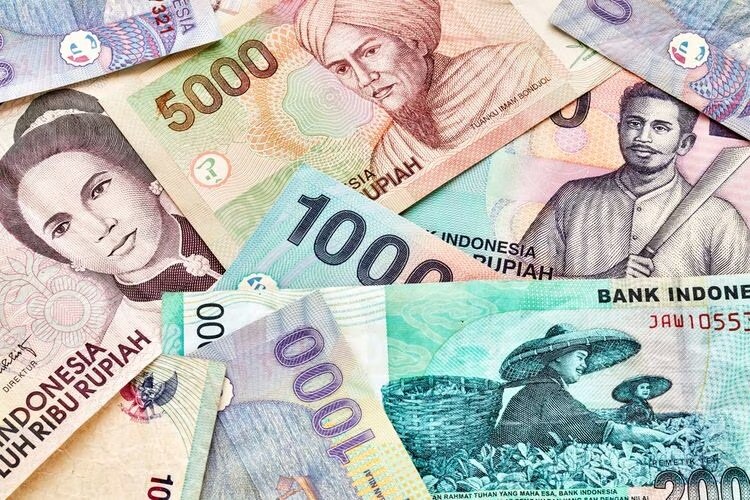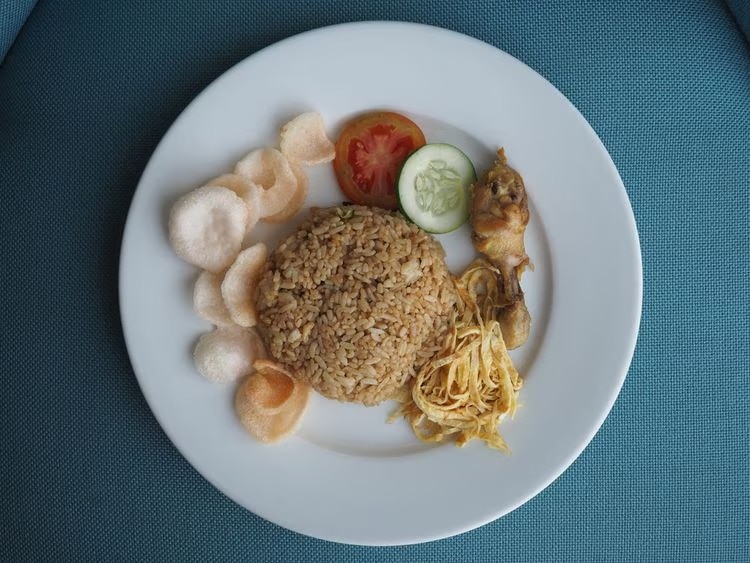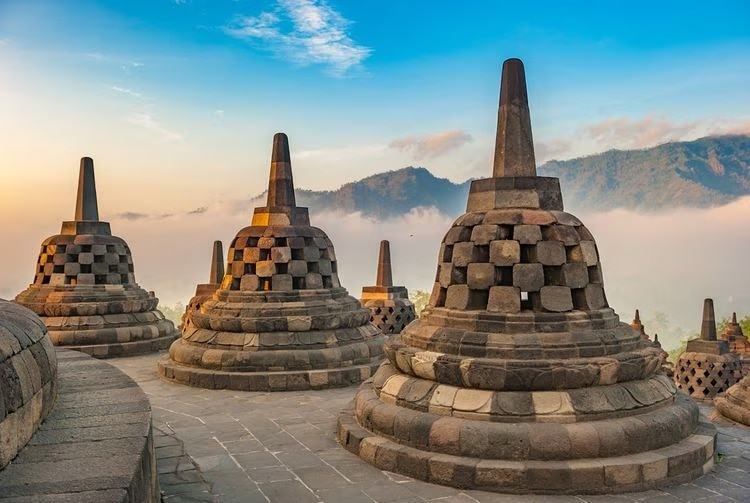-
2026/08/19
Los Angeles(LAX) -
2026/08/25
Denpasar (Bali)
(Updated: September, 05, 2025 16:04)
Indonesia Travel Tips and Information
Official Name
Republic of Indonesia
Capital
Jakarta
Population
Country Code
Around 284.2 million
ID
Country Code (international calls)
+62
The flight time to Indonesia is approximately 19~21 hours. Check the climate, currency, religion, manners, other information of Indonesia below. Wishing you pleasant travels to Indonesia.
Known as the largest archipelago nation, Indonesia spans 5,110 km from east to west, boasting over 13,000 islands. Its location along the equator creates a rich tapestry of landscapes and cultural diversity, offering travelers an array of unique experiences across its beautiful islands.
Compare Airfares for Flights to Indonesia
Compare Airfares for Flights to Indonesia
Compare Airfares for Flights to Indonesia
Compare Airfares for Flights to Indonesia
Local Climate / Weather
Indonesia, a tropical paradise, experiences a warm, humid climate year-round, making it a popular destination for travelers seeking beach escapades, nature exploration, and cultural experiences. The country has two main seasons: the dry season from April to October and the wet season from November to March. Temperatures range from 23°C to 31°C (73°F to 88°F) across the year, with coastal areas experiencing slightly higher humidity. Seasonal Travel Advice ・Dry Season (April - October): Ideal for travel, as the dry season brings sunny days, especially favorable for beach lovers and outdoor activities. This season is excellent for island hopping in Bali, Lombok, and the Gili Islands, exploring temples like Borobudur, or hiking volcanic mountains such as Mount Bromo and Ijen. Prices may be slightly higher due to peak travel periods, especially from June to August. ・Wet Season (November - March): Characterized by daily tropical rain showers, with rainfall intensifying between December and February. While travel is still possible, plan for rain-friendly activities, like visiting museums, art galleries, and shopping centers. Bali and other island regions still see tourist activity, but some remote areas may be challenging to access due to road conditions.
Currency & Tipping
Currency
When visiting Indonesia, Travelers will use the Indonesian Rupiah (IDR), commonly abbreviated as Rp. Familiarizing yourself with the currency's denominations is helpful for seamless transactions. Banknotes range from Rp1,000 to Rp100,000, while coins go from Rp50 to Rp1,000. You can exchange at currency exchange counters, airports, or local banks. Additionally, credit cards are widely accepted in major cities like Jakarta and Bali, though cash is still preferred for smaller purchases and in rural areas.
Tipping
While tipping is not strictly required in Indonesia, it’s appreciated as a gesture of goodwill for quality service. In restaurants, especially those in tourist areas, a service charge is often added to the bill. If a service charge is not included, leaving a tip of around 5-10% is customary. For hotel staff, such as porters or housekeeping, tipping Rp10,000 to Rp20,000 is appropriate. Taxis are commonly rounded up to the nearest thousand Rupiah as a small tip.
Useful Travel Information

Voltage & Electrical Outlets
In Indonesia, the standard voltage is 230V, with a frequency of 50Hz. Travelers may need to bring a universal power adapter. This will ensure easy device charging for essential travel accessories like mobile phones, cameras, and laptops.

Internet Connectivity
Indonesia offers a relatively reliable internet environment in urban centers and tourist-friendly areas. Wi-Fi access is widely available in hotels, cafes, and airports, especially in popular destinations like Bali, Jakarta, and Yogyakarta. However, internet speed can vary, especially in more remote locations. For convenience, travelers may consider purchasing a local SIM card upon arrival. Major telecommunications providers in Indonesia, like Telkomsel, XL Axiata, and Indosat, offer prepaid packages with data plans at competitive rates. A local SIM ensures connectivity for navigation, online bookings, and staying connected with loved ones.
Water for Consumption (Drinking Water)
Tap water in Indonesia is generally not safe for drinking. Travelers are advised to consume bottled or filtered water to avoid health issues. Most hotels provide complimentary bottled water, and bottled water is readily available in convenience stores across the country. Additionally, for environmental consideration, Travelers may wish to carry a reusable water bottle with a built-in filter. This allows for safe drinking water access while reducing plastic waste during their stay.
Culture, Religion & Social Etiquette
Culture
Indonesia, an archipelago with over 17,000 islands, has a rich tapestry of cultures and traditions shaped by its diverse ethnic groups, languages, and histories. Each region has distinct customs, from the famous Balinese dances to Javanese wayang (shadow puppetry) and Sumatra's vibrant Batak festivals. Traditional art forms, textiles (such as batik and ikat), and music, including the mesmerizing sounds of gamelan, form the cultural backbone of Indonesian life.
Religion
Indonesia is the world's largest Muslim-majority country, with Islam deeply influencing its cultural and social practices. In Bali, however, Hinduism predominates, while other islands have Christian, Buddhist, and indigenous religious communities. Religious practices are a central part of daily life in Indonesia, with prayer times, mosques, and temples dotting the landscape. Travelers, especially those interested in religious tourism, can explore mosques, Hindu temples like Pura Besakih, and Christian churches, all showcasing Indonesia's religious diversity.
Social Etiquette
Indonesians place high importance on politeness, patience, and humility, with a particular emphasis on showing respect through gestures and language. Travelers will find familiar the custom of using the right hand for gestures like giving and receiving items, as it is considered respectful. Dress modestly, especially when visiting religious sites, and be mindful of local customs like removing shoes before entering homes or temples. Public displays of affection are uncommon, and maintaining a calm demeanor in social interactions is valued.
Food Culture
Indonesian cuisine is a vibrant fusion of flavors, rich in spices and cultural influences, making it a fascinating culinary experience for travelers. The diverse archipelago of Indonesia offers a unique variety of dishes, each region contributing its own specialties to the nation's food culture. From the earthy and spicy rendang of West Sumatra to the sweet soy-flavored sate in Java, Indonesian dishes are known for their complex spice blends and aromatic flavors that use ingredients like turmeric, ginger, and lemongrass. Street food is an essential part of experiencing Indonesian cuisine, and popular options such as nasi goreng (Indonesian fried rice) and bakso (meatball soup) are must-tries. Gado-gado, a mix of boiled vegetables with peanut sauce, and soto ayam, a comforting chicken soup with spices, are also beloved street food options. In Jakarta, street food hotspots like Jalan Sabang and Glodok offer vibrant food scenes where travelers can indulge in these traditional snacks and meals, perfect for travelers seeking an authentic taste of Indonesian street food culture. When it comes to dining in local restaurants, Indonesia has a variety of recommended spots that showcase authentic flavors. For those visiting Bali, Warung Ibu Oka is famous for babi guling, a Balinese-style roast pork that attracts both locals and tourists. Meanwhile, in Yogyakarta, Gudeg Yu Djum is a long-standing restaurant where visitors can savor gudeg, a sweet jackfruit stew unique to the region. In Jakarta, Dapur Babah Elite is a popular choice that combines traditional Indonesian dishes with a touch of Peranakan influence, offering a memorable culinary experience. Exploring Indonesian food culture allows travelers to immerse themselves in the country's traditions and flavors, making it a satisfying aspect of any visit. With its colorful dishes, flavorful street food, and authentic local restaurants, Indonesia’s food culture promises an unforgettable culinary adventure for all who seek to discover its rich heritage.
Major Tourist Attractions & UNESCO World Heritage Sites
Major Tourist Attractions
The most famous tourist destination in Indonesia is Bali. It's common for tourists to experience Balinese traditional culture or relax at beach resorts. If you're visiting Java, I recommend Jakarta, the capital, and Yogyakarta, home to the royal palace.
UNESCO World Heritage Sites
Indonesia boasts a rich cultural and natural heritage, as evidenced by its many UNESCO World Heritage Sites. Some of the most notable include Borobudur Temple, a Buddhist temple, and Prambanan Temple, a Hindu temple, both located in Java. For nature lovers, Komodo National Park, home to the Komodo dragon, is a must-see.
Travel FAQs
Can I use English in Indonesia?
English is spoken in some tourist areas, making it easier for visitors in these spots.
What are the main cities in Indonesia?
Jakarta, the capital located on Java Island, is Indonesia’s most prominent city and is regarded as one of the world’s major metropolises.
When is the best time to travel to Indonesia?
The best time to visit is during the dry season from May to September, as there’s less rainfall and the temperatures are relatively cooler.
How safe is Indonesia? Are there things I should be mindful of?
Indonesia ranks 56th in the Global Peace Index, similar to countries like France. However, complete safety cannot be guaranteed, so it’s best to remain cautious during your visit.




